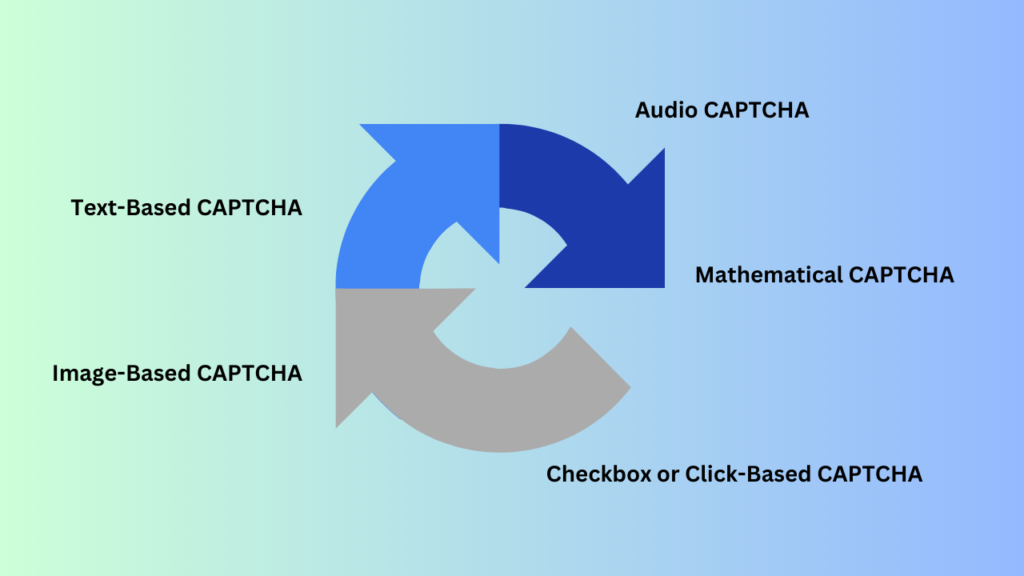Have you Wonder What is CAPTCHA, the “I am not a robot” checkbox, is a vital security measure online. CAPTCHA, short for “Completely Automated Public Turing test to tell Computers and Humans Apart,” is a fundamental security tool deployed across various online platforms. One of its most common implementations is the “I am not a robot” checkbox, which serves as a defense mechanism against automated bots. This security measure plays a crucial role in protecting websites and users from malicious activities such as spamming, phishing, and unauthorized access.
What is CAPTCHA?
- CAPTCHA stands for Completely Automated Public Turing test to tell Computers and Humans Apart. It’s a security measure used to differentiate between human users and bots.
How Does CAPTCHA Work?
- Challenge Generation: Websites create puzzles, like distorted text or images, that are easy for humans but challenging for bots.
- Presentation to the User: Users solve the puzzle, proving they’re human.
- User Response: Users type the letters, click on images, or perform tasks based on the puzzle.
- Verification: Websites check the response. If correct, users are verified as humans.
- Protection against Automated Attacks: CAPTCHA acts as a security guard, preventing bots from interfering with websites.
Types of CAPTCHA:

- Text-Based CAPTCHA: Users enter characters from distorted images.
- Image-Based CAPTCHA: Users select images based on specific criteria.
- Audio CAPTCHA: Users listen to distorted audio and enter the sequence.
- Mathematical CAPTCHA: Users solve mathematical problems.
- Checkbox or Click-Based CAPTCHA: Users confirm their humanity by checking a box or clicking on a specific area.
Why is CAPTCHA Important?
- Prevents Automated Attacks: CAPTCHA safeguards websites from malicious bot activities, such as spamming forms or creating fake accounts.
- Enhances Security: By verifying users’ humanity, CAPTCHA ensures a safer online environment for both websites and users.
Challenges and Limitations:
- Usability Issues: Some CAPTCHA methods may be challenging for users with disabilities, leading to accessibility concerns.
- Effectiveness Against Advanced Bots: While CAPTCHA is effective against basic bots, more sophisticated bots may bypass certain types of CAPTCHA.
Conclusion: CAPTCHA plays a crucial role in protecting websites from automated attacks, ensuring a safer online experience for users. Understanding its mechanisms and importance helps in appreciating its role in internet security.
Read About: Productivity Boosting ChatGPT Prompts for Enhanced Efficiency.
Frequently Asked Questions
- What is CAPTCHA and why is it used?
- CAPTCHA, or Completely Automated Public Turing test to tell Computers and Humans Apart, is used to differentiate between human users and bots on websites to prevent automated attacks.
- How does CAPTCHA work?
- CAPTCHA presents users with puzzles or challenges, such as distorted text or image recognition tasks, which humans can typically solve but are difficult for bots. Users must complete these tasks to prove they are human.
- What are the different types of CAPTCHA?
- CAPTCHA comes in various forms, including text-based, image-based, audio-based, mathematical, and checkbox or click-based CAPTCHA.
- Why is CAPTCHA important for website security?
- CAPTCHA helps prevent automated attacks, such as spamming forms or creating fake accounts, by verifying the human identity of users.
- Are there any limitations or challenges associated with CAPTCHA?
- Yes, some users, particularly those with disabilities, may find certain CAPTCHA methods difficult to complete, raising accessibility concerns. Additionally, more advanced bots may bypass certain types of CAPTCHA.
- How effective is CAPTCHA in preventing automated attacks?
- CAPTCHA is generally effective against basic bots, but more sophisticated bots may find ways to circumvent certain types of CAPTCHA.
- Where can CAPTCHA be typically found on websites?
- CAPTCHA is commonly used during account registration, form submissions, comment sections, and other areas where automated bot interference is a concern.
- Are there any alternatives to traditional CAPTCHA?
- Yes, some websites use alternative methods such as honeypots, time-based challenges, or behavioral analysis to detect and deter bots without requiring user interaction.